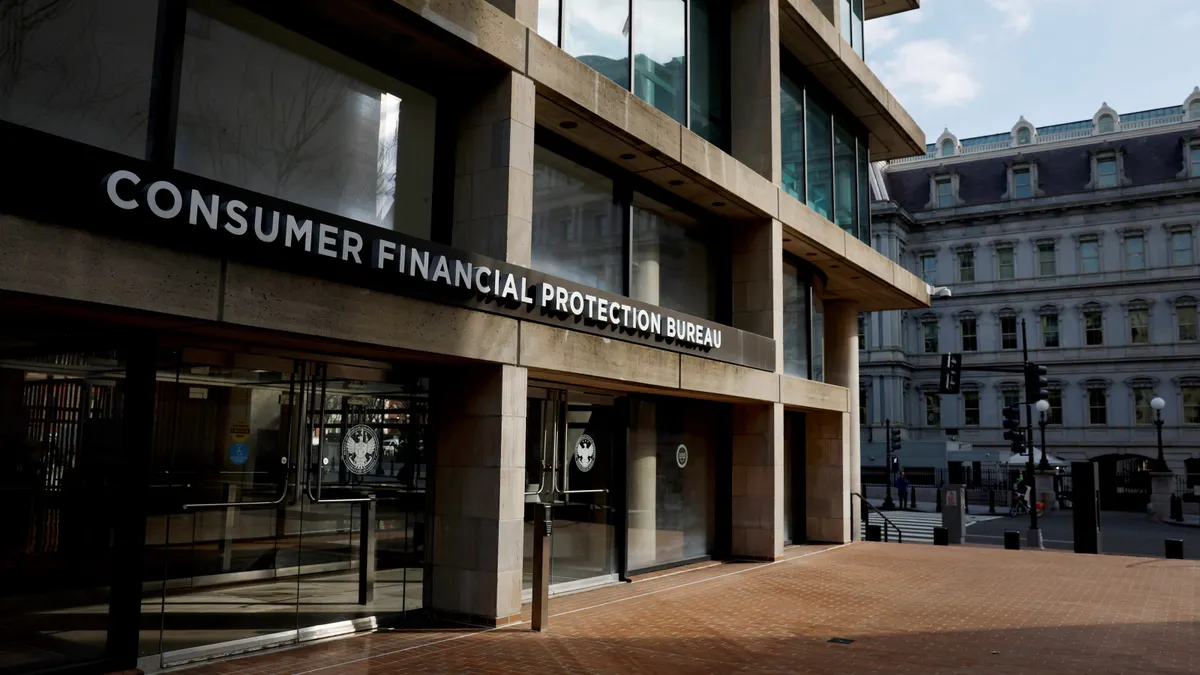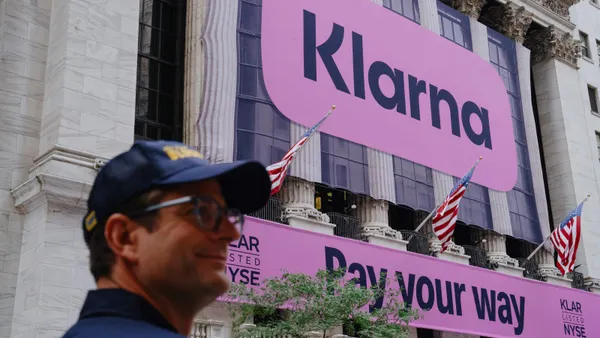Dive Brief:
- The Consumer Financial Protection Bureau last week relinquished its supervision of Google’s payments arm as part of the Trump administration’s efforts to narrow the agency’s work. The CFPB had assumed that oversight in December, under the Biden administration, citing potential risks to consumers.
- Also, Google withdrew a lawsuit it had filed against the federal agency in U.S. District Court over the matter, one day after the bureau’s May 7 decision on supervision. The CFPB did not respond to messages on Friday and Monday seeking comment.
- Supervising Google is “an unwarranted use of the bureau’s powers and resources,” Russell Vought, the CFPB’s acting director said in a memo to bureau employees, first reported by Bloomberg News. The memo was included in the parties’ notice Thursday of the lawsuit dismissal.
Dive Insight:
The bureau’s decision came two days before President Donald Trump on Friday signed into law Congressional Review Act legislation overturning the CFPB’s decision to oversee certain “larger market participants,” which included technology companies and retailers such as Amazon, Apple, Block and Lyft.
Google operated a U.S. peer-to-peer payment platform and a stored-value product through its digital wallet, ending those last year “to simplify the user experience and for other business reasons,” according to its lawsuit.
“It didn’t make sense for the CFPB to supervise a product that never posed any risks and is no longer available in the U.S.,” a Google spokesperson, José Castañeda, said Monday in an emailed statement. “We appreciate their common-sense decision to drop this issue.”
In its suit, Google called CFPB supervision “a burdensome form of regulation that would subject (Google’s payment arm) to on-site examinations and requests for confidential documents and information.”
Under the Biden administration, the CFPB sought to expand its nonbank supervision, in areas such as mortgage and payday lending, service providers and “larger players” in certain markets.
One of those efforts from 2024, giving the bureau authority to supervise and examine nonbank technology companies that offer peer-to-peer money transfer and digital wallet services, drew a fierce response from the tech industry in federal court and Congress.
That effort, which would have allowed the bureau to inspect companies that process more than 50 million yearly transactions, such as Block’s Cash App, Apple Pay and PayPal’s Venmo, led to the CRA in Congress to block the supervision authority.
In its November order and findings on Google, the bureau under former director Rohit Chopra found that the company’s offerings posed risks to consumers. Those included Google’s investigations of transactions alleged to be erroneous and its fraud prevention actions.
“Each of these risks is a sufficient basis to exercise the CFPB’s supervisory authority,” the bureau said.













